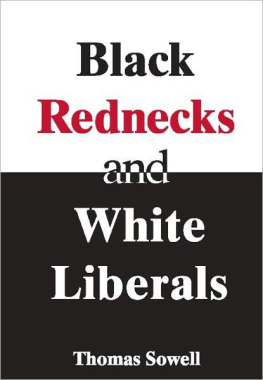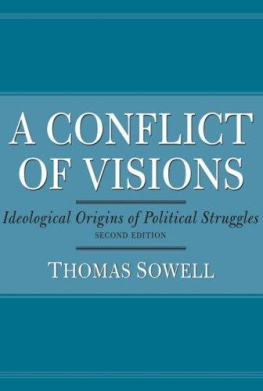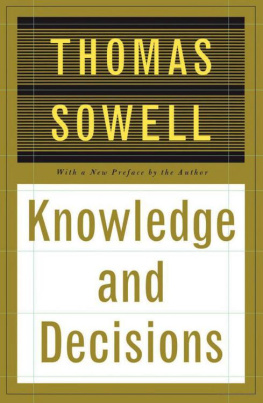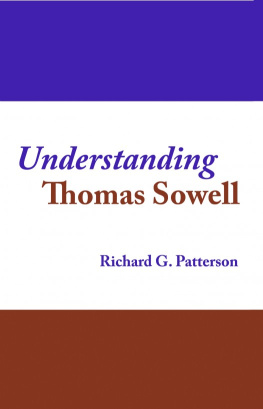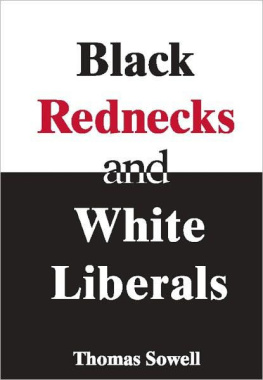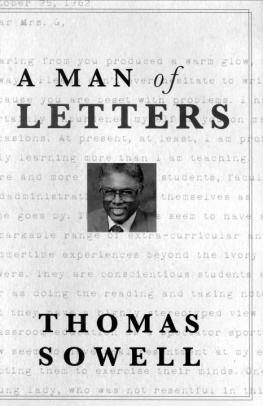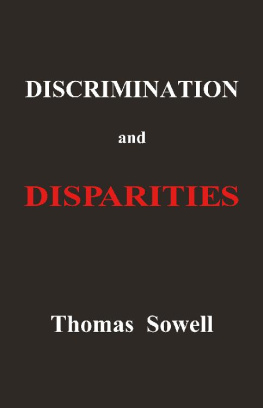Table of Contents
We do not live in the past, but the past in us.
Preface
R ACE AND RHETORIC HAVE GONE TOGETHER for so long that it is easy to forget that facts also matterand these facts often contradict many widely held beliefs. Fantasies and fallacies about racial and ethnic issues have had a particularly painful and deadly history, so exposing some of them is more than an academic exercise.The history of intergroup strife has been written in blood in many countries around the world and across centuries of human history.
The purpose of this book is to expose some of the more blatant misconceptions poisoning race relations in our time. The reasons for these misconceptions range from simple, innocent ignorance to reasons that are far from simple and far from innocent. Many of the facts cited here may be surprising or even startling to some readers, but they are not literally unknown to scholars; they have simply not been widely discussed in the media or even in academia. Too much has been assumed for too long and too little has been scrutinized.
It may be optimistic merely to suggest that racial or ethnic issues can be discussed rationally. Evidence to the contrary is all too abundant in the strident and sweeping condemnations directed against many who have tried to do so.Yet there is also evidence in recent years of a growing willingness to consider views that differ from the racial orthodoxy that has prevailed largely unchallenged from the 1960s onward in intellectual circles and in the popular media. In any event, these essays summarize the conclusions of more than a quarter of a century of my research on racial and cultural issues, as well as drawing on the work of innumerable other scholars around the world.
These writings do not pretend to be definitive. If they provoke thoughts on a subject where clichs and dogmas too often prevail, then this book will have achieved one of its major goals.
However, even a work seeking primarily to untangle a complex set of historic social issues can provoke the fashionable question:But what is your solution?Yet there is not the slightest danger that there will be a shortage of solutions. On the contrary, an abundance of uninformed solutions has been one of our biggest social problems.
Any serious consideration of social problems is likely to involve trade-offs rather than neat solutions, and trade-offs depend on values which can vary from one individual to the next. What trade-offs others might make after considering what these essays have to offer is not something that can be predicted, nor is such a prediction necessary.There is still much to be said for the ancient adage:With all your getting, get understanding. If this book can contribute to understanding on a subject where misunderstandings abound, then it will have done its work.
Because this book is written for the general public, it does not feature long, convoluted sentences with escape clauses designed to prevent words from being twisted to mean something that they were never intended to mean. Common sense can be more readily expected when writing for the general public than when writing for the intelligentsia.To prevent the words in the essays that follow from being stretched, twisted, or given clever meanings, let me state here and now that these essays do not mean that (1) all Southern whites were or are rednecks, that (2) all black Americans today or in the past were or are black rednecks, that (3) Jews are exactly the same as the other groups with whom they are compared, or that (4) slavery is somehow morally acceptable because everyone was guilty of it. One cannot predict, much less forestall, all the clever misinterpretations that others might put on ones words.The most that can be done is to alert honest people to the problem.
While this book is not particularly large in bulk, its scope is worldwide and it goes back through centuries. No one can write a book of such scope without incurring many debts to others.These include scholars who devoted much of their careers to the study of some particular specialty, such as the history of agriculture in the Southern United States or the origins in Britain of various social groups in America. Such debts are too numerous to list here, quite aside from the danger of implicating other writers in conclusions which are my own.What must be acknowledged is my debt to the Hoover Institution, which has provided the conditions and the support which have facilitated my research and writing for more than two decades. For much of that time, my research assistant Na Liu has been an indispensable part of my work and, for this particular book, she has been very ably assisted by the dedicated work of Elizabeth Costa. In the end, however, I must and will take full responsibility for the conclusions reached in the essays that follow.
THOMAS SOWELL
Hoover Institution
Stanford University
Black Rednecks and White Liberals
These people are creating a terrible problem in our cities. They cant or wont hold a job, they flout the law constantly and neglect their children, they drink too much and their moral standards would shame an alley cat. For some reason or other, they absolutely refuse to accommodate themselves to any kind of decent, civilized life.
T HIS WAS SAID IN 1956 IN INDIANAPOLIS, not about blacks or other minorities, but about poor whites from the South. Nor was Indianapolis unique in this respect.A 1951 survey in Detroit found that white Southerners living there were considered undesirable by 21 percent of those surveyed, compared to 13 percent who ranked blacks the same way. In the late 1940s, a Chicago employer said frankly,I told the guard at the plant gate to tell the hillbillies that there were no openings.When poor whites from the South moved into Northern cities to work in war plants during the Second World War,occasionally a white southerner would find that a flat or furnished room had just been rented when the landlord heard his southern accent.
More is involved here than a mere parallel between blacks and Southern whites. What is involved is a common subculture that goes back for centuries, which has encompassed everything from ways of talking to attitudes toward education, violence, and sexand which originated not in the South, but in those parts of the British Isles from which white Southerners came.That culture long ago died out where it originated in Britain, while surviving in the American South. Then it largely died out among both white and black Southerners, while still surviving today in the poorest and worst of the urban black ghettos.
It is not uncommon for a culture to survive longer where it is transplanted and to retain characteristics lost in its place of origin. The French spoken in Quebec and the Spanish spoken in Mexico contain words and phrases that have long since become archaic in France and Spain. The card game whist is today played almost exclusively by blacks, especially low-income blacks, though in the eighteenth century it was played by the British upper classes, and has since then evolved into bridge.The history of the evolution of this game is indicative of a much broader pattern of cultural evolution in much more weighty things.
Southern whites not only spoke the English language in very different ways from whites in other regions, their churches, their roads, their homes, their music, their education, their food, and their sex lives were all sharply different from those of other whites.The history of this redneck or cracker culture is more than a curiosity. It has contemporary significance because of its influence on the economic and social evolution of vast numbers of peoplemillions of blacks and whitesand its continuing influence on the lives and deaths of a residual population in Americas black ghettos which has still not completely escaped from that culture.


